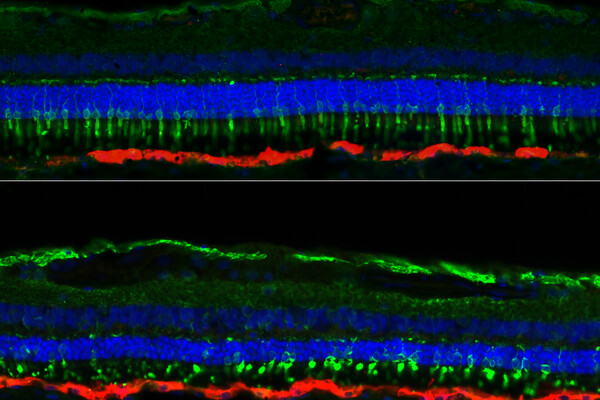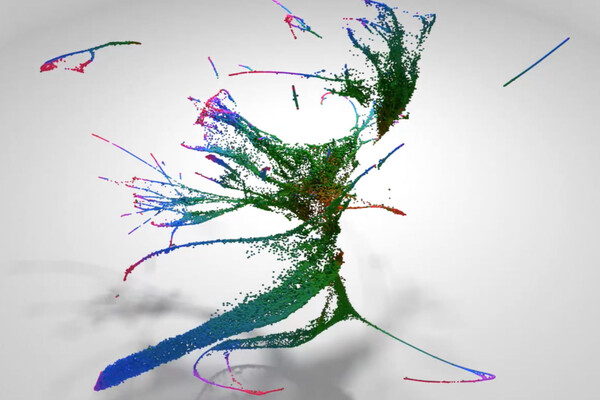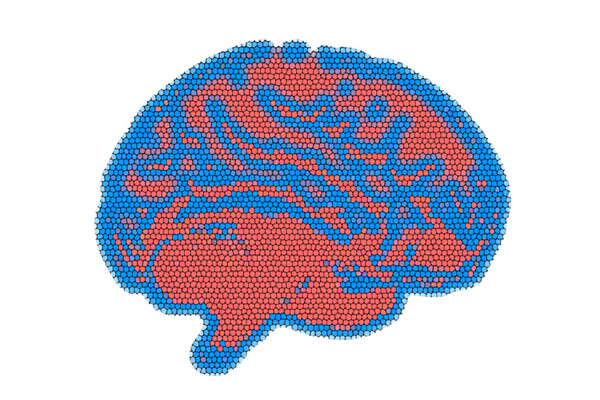
Articles from Katherine Unger Baillie


The dangers of vaping

An ambitious outdoor experiment in fruit flies at Pennovation Works revealed that an altered microbiome can drive evolutionary change. (Photo: Seth Rudman)
Fruit flies’ microbiomes shape their evolution

Canine retinas after successful gene augmentation therapy with RPE65 (red-labeling of the RPE cell layer). When eyes are treated at a stage when photoreceptor numbers are close to normal, there is an arrest of retinal degeneration, and cone (labeled in green) and rod photoreceptors retain normal structure for at least four years following treatment (upper image). If degeneration is ongoing at the time of treatment, there is substantial and progressive loss of photoreceptors in spite of robust RPE65 expression (lower image). (Image: Aguirre Laboratory/Penn Vet)
Is treatment forever? Success of gene therapy for inherited blindness depends on timing

The diet-microbiome connection in inflammatory bowel disease

Sensors on NASA satellites Terra and Aqua captured a record of thousands of points of fire in Brazil in late August. The fires pose a threat to the Amazon rainforest and to people living in and around it. (Image: NASA Earth Observatory)
Inferno in the rainforest

Each cell of a developing nematode worm embryo is catalogued at the molecular level in a new paper out in Science. In this visualization of the dataset, each dot represents a single cell, its color represents the age of the embryo it came from (orange=early, green=mid, blue/red=late), and the dots are arranged so that cells with similar transcriptomes are near each other. Visualized this way, the data form various thin “trajectories” that correspond to tissues and individual cell types. (Image: Cole Trapnell)
A molecular ‘atlas’ of animal development

No evidence that testosterone reduces cognitive empathy

Information gerrymandering can change the way we think about political decisions, as depicted in this image of a gerrymandered mind. People must integrate disparate sources of information when deciding how to vote. But information does not always flow freely; it can be constrained by social networks and distorted by zealots and automated bots. Researchers showed that certain structures in a social network can sway the voting outcome of towards one party, even when both parties have equal size and each player has the same influence, a phenomenon they called “information gerrymandering." (Image: Alexander Stewart)
‘Information gerrymandering’ poses a threat to democratic decision making
